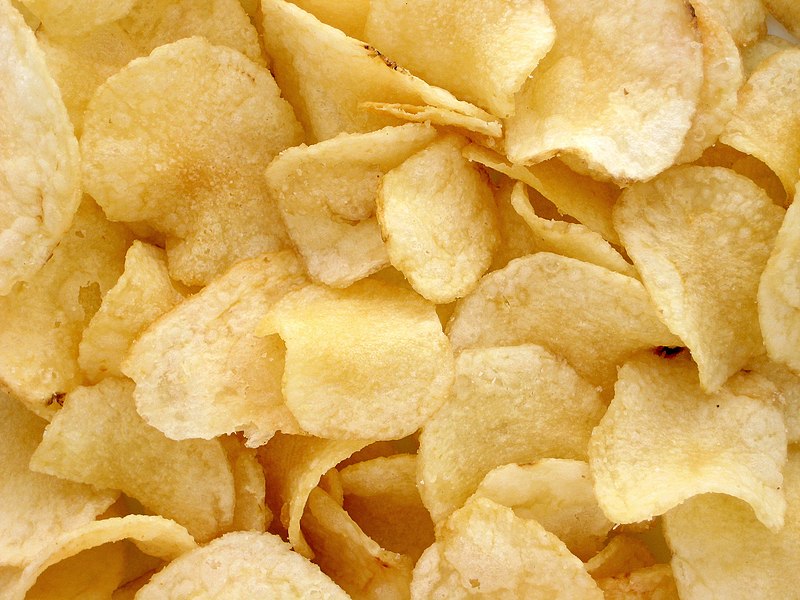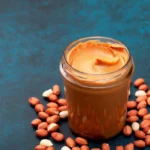
Potato chips are a beloved snack food enjoyed by people all around the world. These crunchy, salty treats are made from thin slices of potatoes that are fried or baked until crispy. While they may seem simple, there are actually many interesting facts about potato chips that you may not know.
For starters, the origins of potato chips can be traced back to the mid-1800s, when a chef named George Crum was working at a resort in Saratoga Springs, New York. Crum was known for his excellent cooking skills, but one day a customer complained that his fried potatoes were too thick and soggy. In response, Crum sliced the potatoes as thinly as possible, fried them until they were crispy, and served them with salt. The customer was delighted by the new snack and they quickly became a hit with the other guests at the resort.
Another interesting fact about potato chips is that they can be flavored in a wide variety of ways. While the classic combination of salt and potatoes is still popular, there are now countless other flavors available, from sour cream and onion to BBQ to ketchup. In fact, the flavor options for potato chips are almost endless, with companies coming up with new and creative combinations all the time.
Another thing that sets potato chips apart from other snacks is the way they are made. The process of creating potato chips is actually quite complex and involves several steps. First, the potatoes are washed, peeled, and sliced into thin, uniform slices. They are then soaked in a solution of water and salt to remove excess starch and prevent them from turning brown. After the soaking process, the potatoes are fried in vegetable oil until they are crispy and golden brown. Finally, they are seasoned with salt and other flavorings before being packaged and sold.
Despite their popularity, potato chips are not always considered to be the healthiest snack option. This is because they are typically high in fat and calories, and they do not provide much in the way of nutritional value. However, this does not mean that you have to avoid potato chips altogether. In moderation, they can be a tasty and satisfying snack, and there are even some healthier options available, such as baked potato chips or chips made from sweet potatoes.
Additionally, the popularity of potato chips has led to a whole industry dedicated to their production and sale. In the United States alone, the potato chip industry is worth billions of dollars, with millions of pounds of potato chips being produced each year. Some of the biggest and most well-known companies in the world, such as Frito Lay and Kettle Brand, are known for their delicious potato chips.
Another interesting fact about potato chips is that they have been the subject of many scientific studies. Researchers have studied the physics of potato chips, trying to understand how they shatter and break when we bite into them. They have also examined the biochemistry of potato chips, looking at the chemical reactions that take place when they are fried and flavored. These studies have helped to improve the quality and flavor of potato chips and have even led to some important scientific discoveries.
Despite their long history and widespread popularity, potato chips are still not universally beloved. Some people dislike the taste of potato chips or find them too greasy or salty. Others avoid them for health reasons, or because they are made from genetically modified potatoes. However, for the majority of people, potato chips are a tasty and satisfying snack that is enjoyed on a regular basis. Whether you love them or hate them, there is no denying that potato chips are a fascinating food with a rich history and many interesting facts.
Frequently Asked Questions About Potato Chips (Crisps)
Potato chips, also known as crisps in some parts of the world, are a beloved snack enjoyed globally. Here are some answers to the most commonly asked questions:
What are potato chips made of?
The basic ingredients for potato chips are simple: potatoes, oil (usually vegetable oil), and salt. However, many varieties incorporate additional flavorings like spices, herbs, cheese powders, and artificial flavors.
How are potato chips made?
The process can vary slightly depending on the manufacturer, but here’s a general overview:
- Slicing: Potatoes are washed, peeled (or not, depending on the desired color), and sliced very thin. Uniformity in thickness ensures even cooking.
- Washing (Optional): Some manufacturers blanch the potato slices in hot water to remove excess starch, which can affect crispness.
- Cooking: The slices are cooked in hot oil (deep-fried, baked, or air-fried) until they reach a golden brown color and become crispy.
- Salting and Seasoning: Salt is added immediately after cooking, and for flavored varieties, additional seasonings are applied while the chips are still hot and can adhere better.
- Cooling and Packaging: The chips are cooled and packaged to prevent spoilage and maintain freshness.
What are the different types of potato chips?
The world of potato chips is vast! Here are some popular variations:
- Classic: Thinly sliced potatoes cooked golden brown and salted.
- Flavored: A seemingly endless array of flavors exists, from savory (cheese, barbecue, sour cream & onion) to spicy (chili pepper, hot wings) to sweet (honey barbecue, kettle corn).
- Crinkle Cut: These chips have a wavy shape that increases surface area, allowing for more intense flavoring.
- Kettle Chips: These thicker chips are cooked in batches in kettles, often with the skins left on, giving them a more rustic and flavorful taste.
- Baked: Baked chips offer a healthier alternative to traditional fried versions, achieving crispness through baking methods.
- Staples: These are thicker, sturdier chips designed for dipping, ideal for scooping up salsa or guacamole.
Are potato chips healthy?
While potato chips can be a satisfying snack, they are generally not considered a healthy food. Here’s why:
- High in Fat: The frying process adds significant fat content, especially saturated and unhealthy fats.
- High in Sodium: Potato chips are typically high in sodium due to the added salt.
- Low in Nutrients: They offer minimal vitamins, minerals, or fiber.
Can I make potato chips at home?
Absolutely! Homemade potato chips allow you to control the ingredients and cooking method for a potentially healthier option. You can use a mandoline slicer for uniform slices, bake or air-fry them for reduced fat content, and season them to your preference.
What is the difference between potato chips and crisps?
It’s a regional difference! In North America, they are called potato chips, while in Britain, Ireland, Australia, and New Zealand, they are called crisps. Interestingly, in Britain, “chips” refer to thick-cut fried potatoes, similar to what North Americans call French fries.
What are some fun facts about potato chips?
- The invention of potato chips is often attributed to George Crum, a chef in Saratoga Springs, New York, in the 1850s. There’s some debate around the veracity of this story, but it’s a popular legend.
- The world’s largest bag of potato chips weighed over 2,500 pounds and was created in Cambridgeshire, England, in 2013.
- There are museums dedicated to potato chips, such as the Crisp Museum in England.
I hope this comprehensive FAQ satisfies your curiosity about potato chips!









